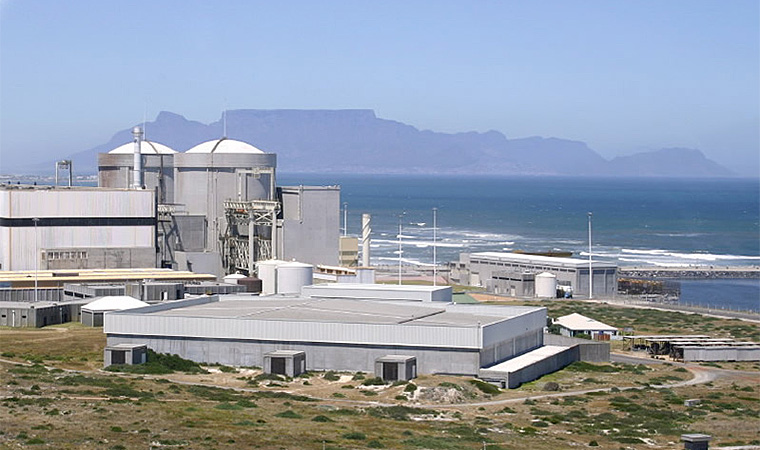
Republic of South Africa can become the “nuclear motive power” of Africa
back to contentsThe widely known in the world regional conference was held in the Center for visitors of the South African Nuclear Energy Corporation NECSA in the city of Pelindaba, the Northwest province of the Republic of South Africa. Development of the positive and active approach to the process of planning and implementation of nuclear capacities in the South African republic became the main subject of the event. The conference became a discussion platform of experts of all directions of the industry, from scientific researches to construction and manufacturing of nuclear facilities.
This year the first persons of the South African state have taken part in the conference, including Tinu Jumat-Petterson, the Minister of Energy, representatives of Nuclear Industry Association of South Africa (NIASA), the South African Nuclear Energy Corporation (NECSA), foreign delegates and representatives of universities.
Nikolai Drozdov, director of the Global Business Department of Rosatom, has noticed during his speech on the conference that the event is confined to a major milestone for the nuclear industry of the Republic of South Africa — 50-year anniversary of Safari-1 research reactor. “The Republic of South Africa is the third manufacturer in the world of medical isotopes and this testifies to the wide experience, capabilities and professionalism accumulated in this beautiful and diverse country,” he underlined.
Rosatom has no doubt that the Republic of South Africa is ready to start the new phase in the history of the nuclear industry and to become again the scientific and technical leader of Africa. “We believe that together with the reliable partner Rosatom the Republic of South Africa can become the motive power of the nuclear industry in the whole African continent and inspire other countries,” he has noted.
Rosatom plans to make the local companies its partners in order to create a full-scale world class nuclear cluster in the Republic of South Africa, from the enterprises of the initial stage of the nuclear fuel cycle to designing and manufacture of complex power engineering equipment. “In the future it will allow the South African companies to implement nuclear power projects not only in the country, but on a global scale as well. We also aspire to the greatest possible localization, and our first assessment shows that its level can reach 60%, which will lead to creation of 15,000 immediate workplaces and 150,000 dependent workplaces in allied industries,” explained Drozdov.
Rosatom is a unique company, because it offers its foreign partners an integrated solution that covers entire nuclear chain work, from extraction and enrichment of uranium to management and processing of spent fuel and waste, from NPP construction to decommissioning.
“We confirm our intentions to participate in the purchase process for the new program of NPP construction in the Republic of South Africa, and we consider that our complex approach distinguishes us from other participants. The integrated offer of the company contains the whole spectrum of products and services of nuclear power industry, including fuel delivery for NPP, management of NPP life cycle, personnel training and various financial solutions,” concluded Drozdov.
We shall remind that the new long-term plan for development of national power, accepted by the Republic of South Africa management in March 2011, assumes creation till 2030 of up to 40 GW of new generating capacities, 9.6 GW of which are the NPPs.
Last year Russia and the Republic of South Africa have entered into the intergovernmental agreement on strategic partnership in nuclear engineering, which provides joint construction of up to eight NPP power units. Except construction of power units the agreement provides for cooperation in other spheres of the nuclear industry, including construction of the research reactor, the help in development of the Republic of South Africa infrastructure and training of experts.




